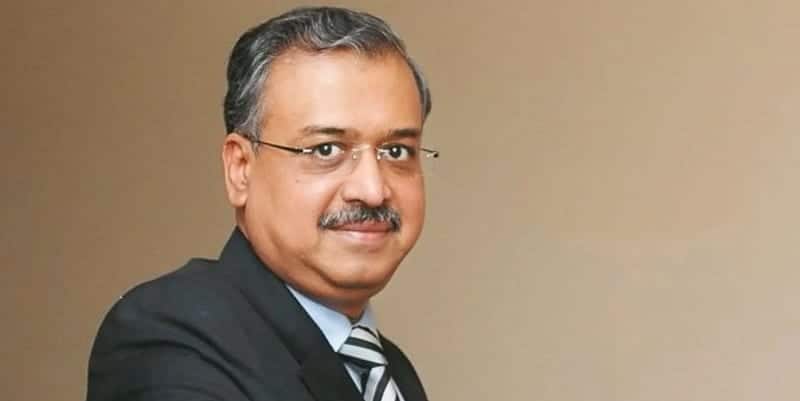Dilip Shanghvi

Dilip Shanghvi (1955), in full Dilip Shantilal Shanghvi, is an Indian businessman and the founder of Sun Pharmaceuticals. Dilip Shanghvi, 66, is considered one of the richest businessmen in India and received the fourth highest civilian honor from the Indian government: the Padma Shri. He lives in Mumbai, India.
Dilip Shanghvi net worth
Forbes estimated his wealth at $16 billion in April 2022, ranking 117th on the list of the richest people in the world. In 2015, he briefly overtook Mukesh Ambani as the richest person from India. His company raises $4.5 billion a year, two-thirds of which comes from foreign operations. This makes it India’s most valuable pharmacist.
Dilip Shanghvi biography
Youth and education
Dilip Shanghvi was born in Amreli, a small town in Gujarat district. His father was the medicine merchant Shantilal N. Shangvi and his mother was named Kumud Shanghvi.
During his high school years, he attended J.J. Ajmera High School, after which he continued his studies at Bhawanipur Education Society College. He then obtained a Bachelor’s degree from the University of Calcutta.
Further career
After graduating, Dilip started working for his father’s general medicine wholesaler. Here he got the idea to start his own production company for medicines.
He borrowed 10,000 rupees from his father and set up Sun Pharmaceuticals with the money in 1982, in the town of Vapi, Gujarat.
The company consisted of 2 marketing members and a small production site where five products were manufactured. The company initially focused on drugs for psychiatry.
Shanghvi and his team worked hard to expand the business and in the early 1990s the company opened its own research and production facility. There were also new products in the field of cardiology and gastroenterology.
During this period, the company also began to export its products to neighboring countries. In 1994, Sun Pharmaceuticals became a publicly traded company.
Expansion Sun Pharmaceuticals
By then, Shanghvi had emerged as a savvy businessman with an ambitious vision for the company. Under his leadership, the company continued to grow at a rapid pace. He set out a comprehensive acquisition strategy to grow the business in an aggressive manner.
In 1996, he bought a production facility from Knoll Pharma in Ahmednagar. By then, the company was active in 24 countries.
International Expansion
Competition with international drug manufacturers was fierce. He therefore divided Sun Pharmaceuticals’ portfolio into generic drugs and niche drugs, such as drugs for psychiatry, cardiology therapy, neurology, dermatology and oncology.
This strategy proved to be a masterstroke, as the company grew with staggering speed in the following years.
The company continued to expand and make acquisitions. In 1997, Sun Pharma acquired Caraco Pharmaceutical Laboratories in Detroit.
The purpose of the acquisition was to gain market share in the United States. Sun also bought shares of two major Indian drug makers during this period: M.J. Pharmaceuticals and Tamilnadu Dadha Pharmaceuticals.
Dilip Shanghvi started expanding the company even faster after these successful acquisitions.
Between 1999 and 2012, he bought more than ten companies and drug brands. In 2007, a three-year process to acquire Israel’s Taro Pharmaceutical Industries began.
It finally succeeded in 2010. After the successful acquisition, the company turned over $1 billion in the United States for the first time.
Legal Challenges
Due to its fierce acquisition strategy and exceptionally rapid growth, the company also faced some challenges. In 2014, the Food & Drug Administration (FDA) banned the importation of drugs from Sun Pharmaceuticals’ factory in Karkhadi, Gujarat. The reason they gave was that the production practices were not good.
The company also felt compelled to recall nearly 70,000 units of its antidepressant drug because it failed its quality test.
The setbacks did not deter the immensely successful businessman. In 2014 it was time for the next major acquisition. Sun Pharmaceuticals acquired rival Ranbaxy Laboratories, part of Japan-based Daiichi Sankyo Co. The acquisition was worth $4 billion. This acquisition made Sun Pharmaceuticals the fifth largest pharmaceutical company in the world.
Personal life of Dilip Shanghvi
Dilip is married to Vibha. Together they have two children: Aalok and Vidhi. Both children work for their father’s company.
Dilip Shanghvi quotes
- “A board of directors that cannot produce reliable audited financial statements for almost seven years simply should not remain in office.”
- “Clearly in my mind, I have two distinct positions – owner and manager. So I am open to reviewing my performance as a manager as any other person in Sun Pharma.”
- “Generally, we have competed with ourselves… because I feel that if I compete against somebody, it causes stress. I don’t want the process of growth to be stressful.”
- “I am not comfortable at all with this tag of being dubbed ‘the richest Indian’ and all the attention that follows for the reason.”
- “I have never seen myself as a promoter. I always evaluate myself as a manager.”
- “I have targets for business achievements; I do not have targets for acquisitions. Because if you have targets for acquisitions, you end up making compromises in terms of valuations, and you buy things because you have a target, and it is not good for business.”
- “I like to win without fighting. But if I can’t, then I’m prepared to fight.”
- “If a company is not doing well, it doesn’t necessarily mean that it is not a good company.”
- “If I look at myself as a manager, I have a lot more to learn.”
- “India is a large market where our focus will be to grow faster than the market and add few percentage points to our market share every year.”
- “Innovation requires a novel approach to scientific problem solving, higher level of resource commitments over much longer time durations.”
- “It is always a challenge to work when people have big expectations. I would much rather feel comfortable working without expectations.”
- “Money is the outcome of my work and is incidental.”
- “Our focus is to see that we are growing faster than the industry and, whichever product we launch, we do better than the competition. We try and manage our operations better than the competition. Essentially, we try to be better than what we were the previous year.”
- “Personally, I feel that a company that looks at problems of other companies and learns from their mistakes is a successful one.”
- “Projects can take years to exhibit proof-of-concept and a few more years to be converted into commercial realities.”
- “The reason we don’t give a date by which we will acquire something is because we don’t want to create pressure on ourselves to buy something.”
- “There is no sense in getting excited by market cap because it is a tool.”
- “Whenever you look at any potential merger or acquisition, you look at the potential to create value for your shareholders.”
How to cite this article:
Janse, B. (2022). Dilip Shanghvi biography, net worth, education and quotes. Retrieved [insert date] from Toolshero: https://www.toolshero.com/toolsheroes/dilip-shanghvi/
Published on: 04/21/2022 | Last update: 11/09/2022
Add a link to this page on your website:
<a href=”https://www.toolshero.com/toolsheroes/dilip-shanghvi/”>Toolshero: Dilip Shanghvi biography, net worth, education and quotes</a>











